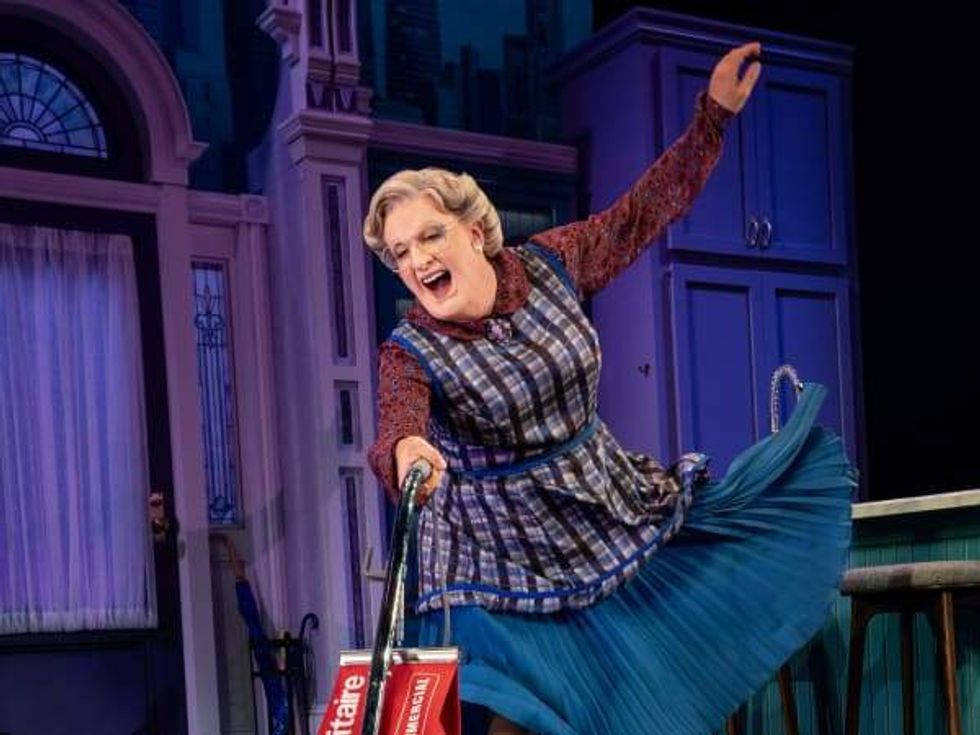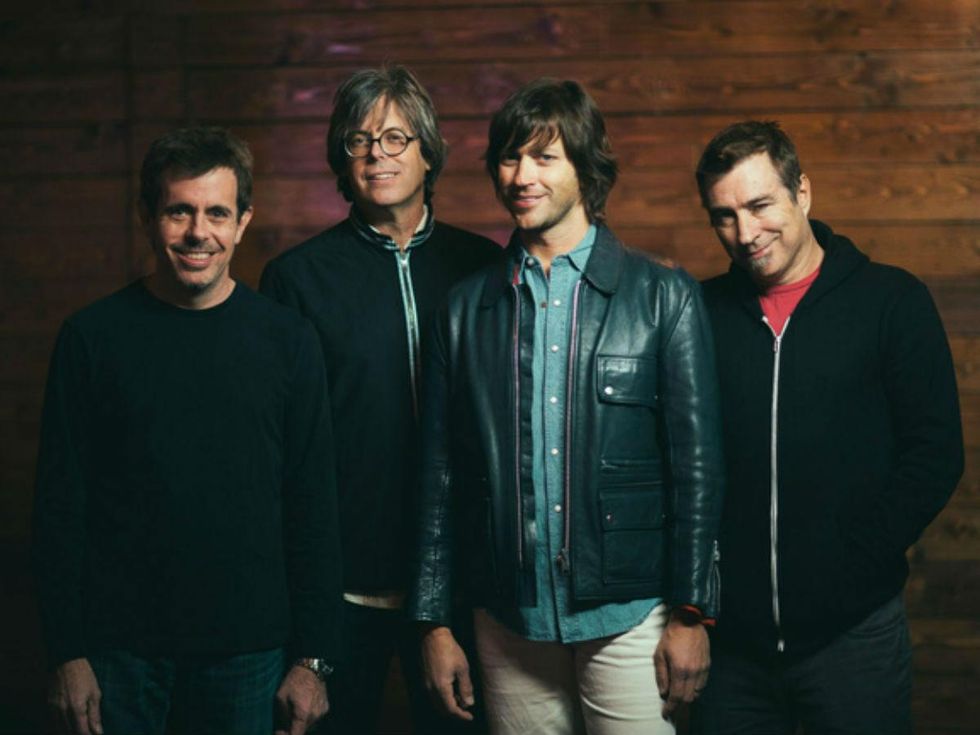When Christmas bumps up against a weekend, as it does this year, it's usually just the ongoing holiday events that are featured. But there will be more than a few new events sprinkled in this year, leaving you with plenty of choices in holiday-themed happenings, theater, comedy, music, and more.
Below are the best ways to spend your free time this Christmas weekend. If you want more options, check out the calendar for an even longer list of the city's best events. For a big list of the best Christmas lights, go here.
Continuing holiday events
If you haven't already had a chance, many different holiday events will remain open at least through this weekend, and some through New Year's weekend. Choices include Snowday and Santaland at Galleria Dallas, Holiday at the Arboretum at Dallas Arboretum and Botanical Garden, CultureMap City Rink at Main Street Garden Park, The Trains at NorthPark, Coca Cola's Classic Christmas at Dallas Midtown, The Light Park in Little Elm, Frisco, or Arlington, and Prairie Lights at Lynn Creek Park at Joe Pool Lake in Grand Prairie, among others.
Theater
Broadway Dallas presents Disney's Beauty and the Beast
Disney’s 30th Anniversary production of Beauty and the Beast is in the middle of an extended stay in Dallas, taking place at the Music Hall at Fair Park through January 4. The enchanting and timeless tale boasts the Oscar-winning and Tony Award-nominated score, including the classic songs “Be Our Guest” and “Beauty and the Beast.”
Pegasus Theatre presents MacMurder!
How about a little murder for Christmas? Pegasus Theatre brings back Harry Hunsacker and his paid-by-the-hour assistant, Nigel Grouse, to try to find a mysterious murderer who might have their sets sights on Harry himself. MacMurder! is produced in Pegasus' Living Black & White style, which recreate the look and feel of classic black-and-white films through a unique combination of makeup, costumes, lighting, and set design. The production runs through January 4 at Addison Performing Arts Centre.
Dallas Theater Center presents A Christmas Carol
Seeing A Christmas Carol is a tradition for many, and no Dallas theater company has done it as much or as well as Dallas Theater Center. Audiences will embark on a magical Christmas Eve adventure with Ebenezer Scrooge as three otherworldly spirits whisk him away on a breathtaking journey of hope and redemption. From the nostalgic warmth of Christmases past to the stark truths of the present and the ominous shadows of the future, Scrooge’s journey is a spectacle of wonder. There will be showings through December 27 at Wyly Theatre.
Broadway at the Center presents Mrs. Doubtfire
What's this? A new production on Christmas weekend? Everyone’s favorite Scottish nanny comes to Dallas in Mrs. Doubtfire. The musical, based on the beloved 1993 film starring Robin Williams, tells the hysterical and heartfelt story of an out-of-work actor who will do anything for his kids. There will be five performances, December 26-28, at Winspear Opera House.
Comedy
Hyena's presents Ron Pearson
Not only does Ron Pearson juggle in his act, he also juggles his Hollywood career. As a stand-up comedian, Pearson has made hundreds of TV appearances doing stand-up on shows like The Late Late Show, Chelsea Lately, The Dennis Miller Show, Nickmom Night Out, and on Comedy Central. He'll perform four times on December 26 and 27 at Hyena's Comedy Nightclub.
Improv Addison presents Mark Curry
Mark Curry is an American actor, comedian, and host best known as the star of the ABC sitcom Hangin' with Mr. Cooper and as one of the various hosts of the syndicated series It's Showtime at the Apollo. He'll perform five times, December 26-28, at Improv Addison.
Improv Arlington presents Aries Spears
Ever since Chicago native Aries Spears was 14 years old, he has been a force to be reckoned with in the comedy scene throughout America. His quick wit, charisma, and ferociously aggressive style of comedy have earned him critical acclaim, high accolades, and above all, a busy schedule. He has been a regular on Fox’s Mad TV, starring in feature films, appeared on a number of national talk shows, and continually toured the country with his stand-up act. He'll perform six times, December 26-28, at Improv Arlington.
Dallas Comedy Club presents Dean Stanfield
Dean Stanfield is a comedian, actor, writer and race car driver from Austin. He has been showcased three years on Moontower Comedy Festival and won second place in Helium’s "Funniest Person in Austin" competition. He has featured for Mark Normand and Ian Fidance on the road and was recently named a 2025 Just For Laughs New Face in the stand-up category. He'll perform four times on December 26 and 27 at Dallas Comedy Club.
Music
Old 97's in concert with Joshua Ray Walker and Rhett Miller
The Old 97's are a Dallas original, forming in 1992 and becoming pioneers of the alt-country movement. Even though they never made it huge nationally, they continue to be a big deal locally and still put out new music, most recently American Primitive in 2024. This special post-Christmas show, taking place on December 27 at Longhorn Ballroom, will feature a set by both the band and a solo set by lead singer Rhett Miller, as well as a performance by Joshua Ray Walker.
Other holiday shows
Cirque Musica Holiday Wonderland
The first of a trio of one-off holiday events this weekend is Cirque Musica Holiday Wonderland, which features a thrilling blend of world-class circus artistry and favorite holiday music, is a spectacular production that transports audiences to a winter wonderland of awe and enchantment. The performance takes place on December 26 at Comerica Center in Frisco.
Eisemann Center presents Campana Sobre Campana: Christmas in Mexico
Campana Sobre Campana: Christmas in Mexico, presented by Mariachi Garibaldi de Jaime Cuéllar and Ballet Folklorico del Rio Grande, is named after the beloved Andalusian Christmas carol. The show journeys through the joyous rhythms of "Bells Upon Bells" and the vibrant spectacle of Mexican dance, capturing the heartwarming story of Mary and Joseph's journey. The event takes place on December 27 at Eisemann Center for Performing Arts in Richardson.
Mocky Horror Picture Show presents Jack Frost
People love to revisit classic holiday movies, but what about ones that are infamously bad? In this special show, Mocky Horror stars comedians Liz Barksdale, Danny Gallagher, and Albie Robles will riff on Jack Frost, starring Michael Keaton as a dad who dies on Christmas Day and comes back to life as a snowman. In addition, the group will perform brand new comedy sketches, new riffs of holiday shorts, offer a chance to win presents from Collected Comics, and welcome a special visit from Santa Claus himself. The event takes place on December 28 at Texas Theatre.





